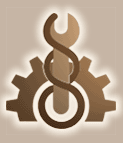The Psychology Of Behaviour At Work
İÇİNDEKİLERContentsPreface 1 Introduction What is organizational behaviour? Terminological differences Some central questions The limitations of past approaches Personality x organizational interaction Management science, OB, and common sense Theories, laws and models in OB The direction of causality Major methods of OB research Conclusion 2 The history of organizational psychology and the study of OB Introduction 49 Different approaches to historical understanding Models of man approach to OB The great thinker perspective The time-band perspective The school of thought perspective The seminal study approach Integrating the different perspectives Conclusion 3 Vocational choice, organizational selection and socialization Introduction Vocational choice and guidance Theories in vocational psychology Person-job fit 98 Expectancy theory and occupational choice Interest levels Personnel selection Organizational choice Organizational socialization Recent developments Conclusion 4 Personality and individual differences Introduction 142 Six approaches to personality and individual differences at work Personality testing at work Trait theories of organizational behaviour The biodata method Self-esteem at work Why personality traits may not predict behaviour at work Conclusion 5 Work-related attitudes, values and perceptions Introduction 204 Do work attitudes predict behaviour at work? Work-related belief systems Social values and work Perceiving others at work Decision-making Conclusion 6 Work motivation and satisfaction Introduction The motivation to work Need theories Equity theories Value theories Reinforcement theories Expectancy theories Job facet theory and QWL Attributional style 279 The comparison and integration of the different theories Motivation enhancing techniques Work-related locus of control Measuring job motivation and involvement Work satisfaction Theories of the causes of job satisfaction Measuring job satisfaction Conclusion 7 Stress at work Introduction Occupational stress The causes of stress The consequences of stress Conclusion 8 Cooperation, power and ethical behaviour in organizations Introduction CONTENTS Cooperation in organizations Conflict in organizations The conflict process Causes of conflict Structural solutions Conflict management Power and influence in organizations Organizational politics Group power Business ethics Conclusion 9. Learning and training at work Introduction Theories of learning 394 Observational learning: learning by modelling others Punishing and disciplining undesirable behaviour Current trends in training Developing a training strategy Learning style Training needs Measuring the effectiveness of training Conclusion 10 Group dynamics Introduction What is a group? Group development Formal and informal groups Group characteristics The characteristics of an effective workgroup Group diversity Individuals, teams and occupational success Benefıts and drawbacks of working in groups Intergroup behaviour Conclusion 11 Decision-making Introduction How "rational" are human beings? Individual versus group decision-making Brainstorming Techniques to improve creativity and innovation Group-think Group polarization when taking risky decisions Conclusion 12 Leadership Introduction A historical review of approaches to leadership Followership and mutual influence Networking, negotiating and enabling Conclusion 13 Corporate culture and climate Introduction The problem of definition Dimensions, factors, and other distinctions Classifying and categorizing culture The major impact of corporate culture on organizations Assessing and measuring corporate culture Corporate climate History and definition of the concept of climate Different types of climate The causes and consequences of climate Measuring climate New directions and emerging trends Conclusion 14.Organizational structure, change and development Introduction Organizational charts Departmentalization Kinds of departments Centralization versus decentralization The consequences of a poor structure Organizational change 621 Factors associated with organizational change Characteristics of the change situation Reactions to change Organization development (OD) Conclusion 15 Working abroad introduction Types of expatriates Culture shock The U-curve hypothesis Preparing, selecting, training, evaluating and repatriating managers Reducing expatriate stress Conclısion 16 The future of work Introduction Forecasting the present Predicting the future of work The global future Education and the future of work The future of work-psychology The next millennium Conclusion Index NOTLARthe individual in the organization   |



